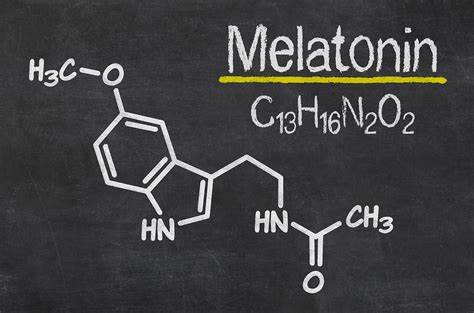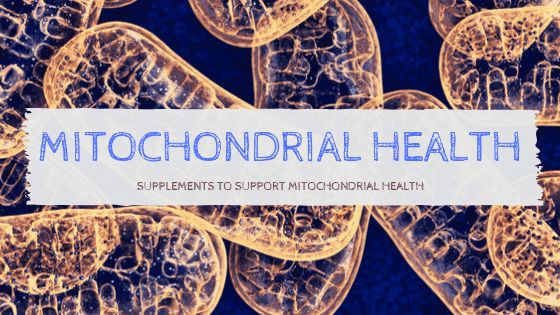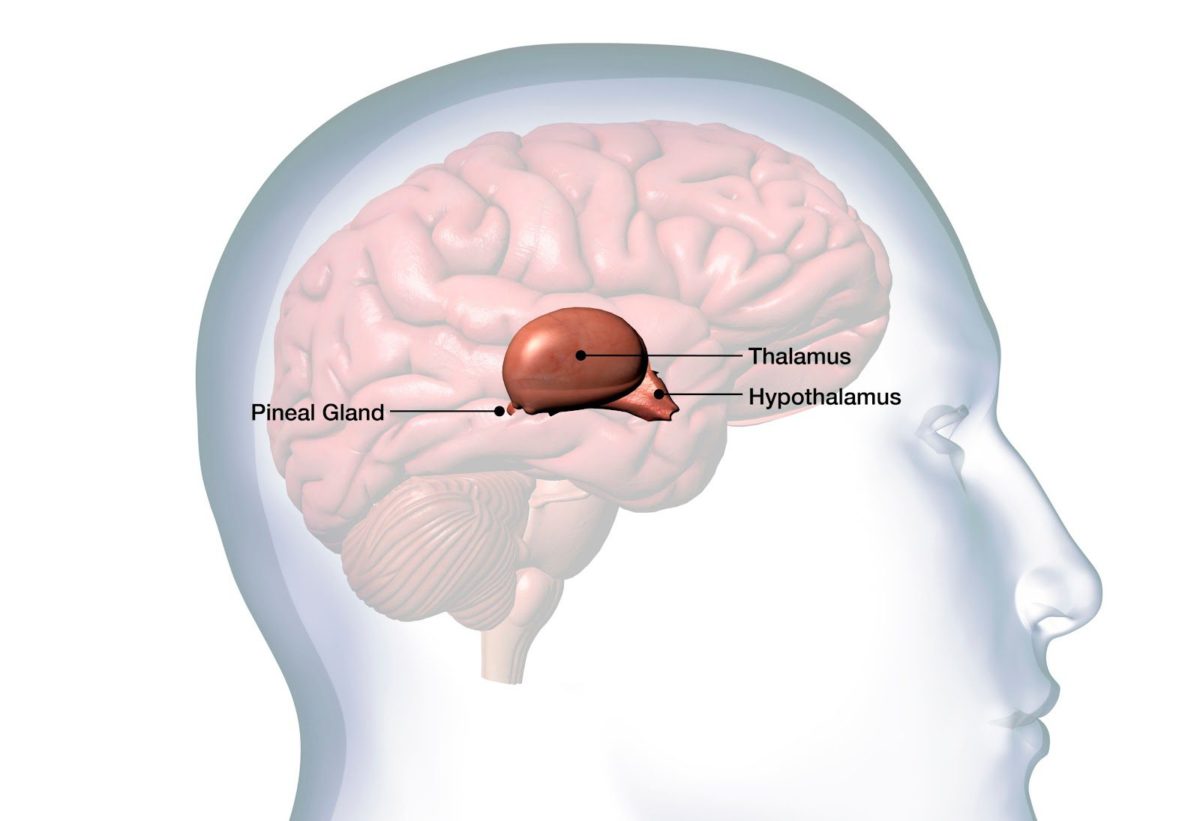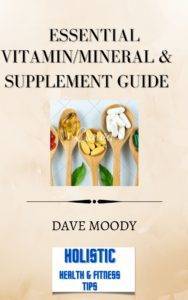Melatonin is a hormone that is produced by the pineal gland in the brain. It helps regulate sleep and wake cycles. Melatonin is being used for more than just insomnia. It has been used to treat jet lag, depression, and other disorders. It has also been used to help with anxiety, headaches, stress and a myriad of other issues. Melatonin receptors are found throughout the body including the liver, pancreas, brain, and the enterochromaffin of the gastrointestinal tract. The latest research indicates high dose may even prolong life by 20+ percent in lab mice lifespans!
Studies Show Melatonin is Much More than a Sleep Hormone
Relatively new findings shed a different light on melatonin and the previous belief that it is only produced by the pineal gland. Anytime receptors are present, it indicates a more diverse purpose or use of a hormone. Vitamin D is another example of extensive receptors throughout the body. Now that melatonin has been found to be produced in parts of the body other than the brain, the evidence of a vast network of receptors is further proof of its importance beyond sleep!

Melatonin is referred to as the sleep hormone and understandably so. The release of less than half a mg of this hormone from the pineal gland controls our sleep cycles. Our bodies were designed to sleep after sunset and when the melatonin begins to be released peaking in the early AM.
There is a myriad of reasons for insomnia from drinking alcohol to foods, to anxiety, so the lack of melatonin is not the sole reason for poor sleep. Presuming we get our sleep hygiene together and only have occasional episodes that disrupt our sleep, we can determine if melatonin may be the issue to focus on.
Just like other bodily functions, melatonin production decreases with age. From childhood to old age, melatonin levels take a nosedive. Research shows how dramatically melatonin decreases by middle age and to nearly zero as a senior! It’s no wonder why seniors often complain about sleep or lack of enough quality sleep!

Insomnia and Old Age Go Hand in Hand Without Melatonin
I can attest to this now as a senior that is very fit and follows all my health protocols quite well. It appears that in spite of good health practices, my melatonin has gone south and not about to return on its own! Most of the time I could fall asleep standing up if necessary and never had sleep issues until around my mid 60s. I was not sleeping through the night and found myself tired and napping the following day.
I never considered sleep hygiene as much as diet, exercise, etc until I suddenly couldn’t sleep! It gets disconcerting when you lay awake for hours with mind racing! I stubbornly figured it was just a bad spell and would return to normal after a while. I was wrong. Yes, I slept some nights but for the most part, I was hurting for quality sleep most of the week.

List of High Dose Melatonin Benefits:
1. Melatonin is a natural hormone that is produced by the pineal gland and others to facilitate sleep cycles and several other functions
2. It helps to regulate circadian rhythms, which are physical, mental and behavioral changes due to a 24-hour cycle of light and dark.
3. Melatonin can help people with insomnia fall asleep faster and stay asleep longer because it regulates their sleep-wake cycle
4. High dose melatonin may also be helpful for people with Alzheimer’s disease, Parkinson’s disease, depression, anxiety disorders, autism spectrum disorders and other conditions that cause daytime sleepiness or nighttime restlessness.
5. New research shows Melatonin is a top antioxidant that is even more powerful than glutathione, previously believed to be the strongest of all antioxidants!
6. Pain and inflammation relief. Being the strongest antioxidant, the belief is that free radicals are nullified and cleared from the body and brain. This may prove to be a major factor in treatment of arthritis sufferers and others with chronic pain.
7. Headaches and migraine relief, Again, the powerful antioxidant capabilities are believed to cleanse free radicals. Since melatonin can cross the blood/brain barrier, it’s tremendous benefits can work in the brain while sleeping, thus reducing oxidation during the daytime.
8. Neurodegeneration (Alzheimer’s) It is believed that high dose melatonin attacks certain enzymes present in Alzheimer sufferers and stops or slows progression of this degenerative disease.
9. Insulin resistance, fat loss. As if melatonin did not do enough already, research now finds a correlation of improved insulin metabolism and subsequent fat loss. Limited tests so far but a study in post-menopausal women showed a clinically significant weight loss in those taking melatonin vs the placebo group.
10 Radiation remediation. Incredibly, high dose melatonin has been shown to diminish the harmful effects of radiation and chemotherapies!
11.Oral/dental health. Research indicates that sublingual or spray melatonin promotes oral health and wellness! The saliva mixed with melatonin creates a protective environment that preserves gum tissues and bone health.
Foods that promote melatonin: chocolate, warm milk, chickpeas, red meat, fish, poultry, cherries, walnuts, rice and magnesium supplementation.
Does Regular and High Dose Melatonin Downregulate Receptors?
There is some belief that regular usage of melatonin can down regulate the receptors or in essence, render the hormone less effective. It is also believed by some that using an exogenous source of melatonin that is not produced by your body will make us dependent on supplementation.
Both theories are just that, theories and there are no research studies showing either hypothesis to be true. There are a few early adopter proponents of high dose melatonin supplementation that take upwards of 200 mg per day and have for decades without any reported side effects!
High dose melatonin proponents believe that taking amounts up to and over 200 mg per day can irradicate devasting diseases like Parkinsons, cancer and Alzheimer’s. There is clinical evidence in human and rat studies that has shown high dose indeed works. In addition to the effects on disease, high dose melatonin in rats increased life span by approximately 20 percent! Is it the fountain of youth for homo sapiens?
Virtually all doctors and researchers agree that there are no dangerous side effects from using exogenous melatonin as evidenced by the high dose adopters supplementing for thirty years and more!
Another way to look at it is seeing how the level of melatonin decreases with age. Supplementing with exogenous melatonin seems to be a moot point after age 30! Concern over down regulation of the body’s ability to produce melatonin on its own is misplaced. If you have little to no melatonin, it only makes sense to supplement! Yes, we should try to optimize our body’s ability to produce with food and nutritional supplements, but research proves it is a losing battle in the long run.
Since studies show no down regulation or side effects of high dose melatonin, it makes sense to consider taking melatonin supplements. I suggest starting low as stated and moving up as you monitor your situation. Taking high dose melatonin may or may not be limited to aggressive disease.
Of course, it makes little sense to supplement as a minor short of metabolic anomalies but as the chart shows, melatonin takes a precipitous fall by middle age. As a senior, my melatonin is at vapor level and why I am taking 40 mg semi high dose melatonin currently and sleeping much better. Do your own research to decide but I am a believer.
We Have a Way to Go & Need More High Dose Melatonin Studies
I do believe that the jury is still out on high dose melatonin, and we are still far from a verdict. As I have experienced in my research in so many cases, the so-called experts aren’t so knowledgeable all the time. We can refer to so many helpful molecules and hormones that are demonized by the mainstream medical industry. Vitamin D was curing everyone back in the 1930s but suddenly went on the shit list and just recently returned after almost 100 years in purgatory! Just a couple years ago at the onset of the “pandemic”,
Dr. Fauci, Mr. Science, clearly said, do not use vitamin D and other natural viral curatives because they do not work! A year later, he was on TV saying, vitamin D is something people should consider taking! He is no better than so many hacks that have either sold out to big pharma and money or simply do not stay up on studies. We need to do our own research and what this website is about for those too busy to do their own.

Another Big Pharma Target?
I am not going to say high dose melatonin is the new vitamin D at this point, but it is apparent that research is discovering it does much more than just regulate our sleep cycles. This is very exciting! On the other hand, you will read of how dangerous it is and that you must avoid it! I read a paper that stated it took the medical field on average, seventeen years to adopt new research! The establishment old fuddy duddy “experts” default to negative remarks. No, do not take supplements! In the case of melatonin, it’s not so much that they are demonizing it since it is over the counter in the US but stating to take miniscule doses.
The Medical Industry Moves Slowly Unless There’s Money
Always remember, the medical establishment has no reservations about pushing prescription drugs as the experimental vaccine can attest to!
What is their logic? It appears to be based on sleep only at this time and getting to sleep. They theorize that micro dosing as little as .1mg, one tenth mg., may be enough to induce sleep. I will not argue with this theory except that this does not consider the age nor the ability to stay asleep. I would suggest starting with the lowest dose to see how you react and move upward from there if you do not get to sleep. You can buy one to three mg dose pills and even break them in half if you desire.
High Dose Melatonin is Reportedly Beneficial in Critical Diseases
What about the other benefits and doses? Again, the mainstream medical professionals will avoid discussing this at all costs. In spite of recent research studies showing other benefits, they will squirm and revert to the typical response of only taking less than ten mg because of the side effects! What side effects? What dangers? Don’t ask any further questions because you will be wasting your breath. If you do happen to have a holistic doctor knowledgeable about melatonin, congratulations!
Back to the other benefits like cancer. Studies show that high dose works on a number of maladies from cancer, arthritis, Parkinsons and Alzheimer’s to insulin resistance and even fat loss! As of this writing, the research is relatively new and not enough studies on specific doses and results. It appears that the dosage range is quite broad from around 10mg to 300mg depending on what condition is being targeted.
Experimenting with Dose
My current dose is 40 mg per day and finally sleeping well and feeling stronger, more rested and with even lower blood pressure. I do not know as of now, whether I will try the very high dose but suggest starting low. After a month or so, I will see how I feel. It might be one of those individual type things where dose could be all over the map. In my case, maybe 40 mg is the magic bullet while for others, much lower or higher.
I will say that if you are suffering from one of the diseases mentioned, it might be worth escalating the dose upward quickly since time is of the essence. Disclaimer – check with your doctor first and if the melatonin conflicts with any prescribed drugs being used.
Side effects:
hypothermia-lowering of body temperature, dizziness, fatigue, heart palpitations, agitation. Very low evidence of these issues and when discontinuing use of melatonin, side effects resolve. Melatonin is found to not be habit forming even after continual use for years.
Melatonin Interaction with Vitamin D
Research indicates a correlation or symbiosis with vitamin D and currently used to treat Parkinson’s patients. Findings indicate that both share the same receptors in the body!
It is unclear if this competition for receptor is an issue but believed that high dose D may interfere with melatonin absorption. The research appears to contradict with melatonin and D benefitting yet pointing out the conflict. My theory is derived from other supplements that compete with the same receptor and that’s to get the proper ration correct. Since I have the VDR D mutation like many others, we must get high doses of D to survive and be healthy.
Like zinc for instance, we need to counteract supplementation with copper to balance out. If we take high dose D, my theory is we need to take high dose melatonin. How much, I don’t know but if you factor in age, it should be a partial guideline. As a senior, the 3mg dose has no benefit for me as does 1 or 2,000 IU of D3. Between sun exposure and D supplementation, I probably get over 50,000 IU of D per day, if not more. For me, it makes sense to then take high dose melatonin to offset the D. Unfortunately, there is no research to date and I will be your guinea pig for now:)
Summary
I strongly urge those in middle and senior age to consider supplementing with melatonin for great sleep and the other amazing potential benefits!
List of High Dose Melatonin Protocols for Various Illnesses
- Cancer
20 to 60 mg
- Alzheimer disease
100 mg
- Malignant Epilepsy
50 to 100 mg
- Parkinson disease
100 mg
- Fibromyalgia
10 to 40 mg
- Diabetes type 2
40 to 60 mg
The Therapeutic Effects of High-Dose Melatonin Administration
High Dose References
- Ling,X, L M Zhang, S D Lu, X J Li, F Y Sun, 1999, Protective effect of melatonin on injuried cerebral neurons is associated with bcl-2 protein over-expression: Zhongguo Yao Li Xue.Bao., v. 20, p. 409-414.
- Magri,F, S Sarra, W Cinchetti, V Guazzoni, M Fioravanti, L Cravello, E Ferrari, 2004, Qualitative and quantitative changes of melatonin levels in physiological and pathological aging and in centenarians: J.Pineal Res., v. 36, p. 256-261.
- Manev,H, T Uz, A Kharlamov, J Y Joo, 1996, Increased brain damage after stroke or excitotoxic seizures in melatonin-deficient rats: Faseb Journal, v. 10, p. 1546-1551.
- Matsubara E, Bryant-Thomas T, Pacheco Quinto J, Henry TL, Poeggeler B, Herbert D, Cruz-Sanchez F, Chyan YJ, Smith MA, Perry G, Shoji M, Abe K, Leone A, Grundke-Ikbal I, Wilson GL, Ghiso J, Williams C, Refolo LM, Pappolla MA, Chain DG, Neria E. Melatonin increases survival and inhibits oxidative and amyloid pathology in a transgenic model of Alzheimer’s disease. Neurochem. 2003; 85:1101-1108.
- Melchiorri,D, R J Reiter, E Sewerynek, L D Chen, G Nistico, 1995, Melatonin reduces kainate-induced lipid peroxidation in homogenates of different brain regions: FASEB J, v. 9, p. 1205-1210.
- Mordenti Jy Chappel W The use of interespecies scaling in toxicokinetics en (Yacobi ,Kelly y Batra V)eds Toxicokinetics and new drug development
- Pergamon press New York 1989 pp42-96
- Reiter,RJ, 1998, Oxidative damage in the central nervous system: protection by melatonin: Prog.Neurobiol., v. 56, p. 359-384.
- Reiter,RJ, 2003, Melatonin: clinical relevance: Best.Pract.Res.Clin.Endocrinol.Metab, v. 17, p. 273-285.
- Reiter,RJ, D X Tan, S Burkhardt, 2002, Reactive oxygen and nitrogen species and cellular and organismal decline: amelioration with melatonin: Mech.Ageing Dev., v. 123, p. 1007-1019.
- Sastre,J, F V Pallardo, J Vina, 2000, Mitochondrial oxidative stress plays a key role in aging and apoptosis: IUBMB.Life, v. 49, p. 427-435.
- Shirazi A, Ghobadi G and Ghazi-Khansari M. A radiobiological Review on Melatonin: a novel radioprotector. J. Radiat. Res. 2007; 48:2063-72
- Tan,D, L Chen, B Poeggeler, L Manchester, R Reiter, 1993, Melatonin: a potent, endogenous hydroxyl radical scavenger: Endocr.J, v. 1, p. 60-87.
- Tan DX, Manchester LC, Terron MP, Flores LJ, Reiter RJ. One molecule, many derivatives: a never-ending interaction of melatonin with reactive oxygen and nitrogen species. J Pineal Res 2007; 42:28-42
- Witt-Enderby PA, Bennett J, Jarzynka MJ, Firestine S, Melan MA. Melatonin receptors and their regulation: biochemical and structural mechanisms. Life Sci. 2003; 72: 2183-2198.
- Wakatsuki, A. Y Okatani, K Shinohara, N Ikenoue, C Kaneda, T Fukaya, 2001, Melatonin protects fetal rat brain against oxidative mitochondrial damage: J Pineal Res, v. 30, p. 22-28.









